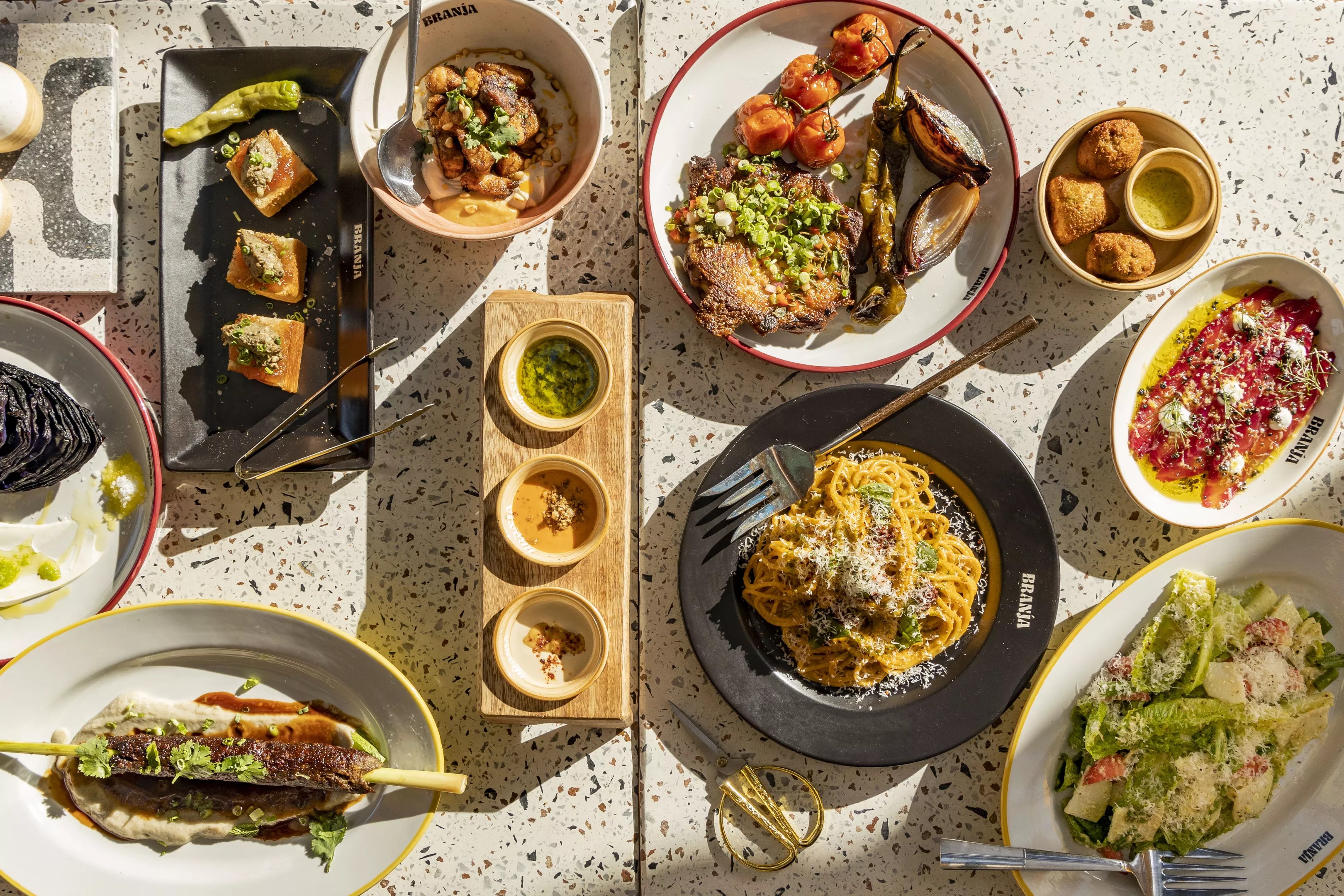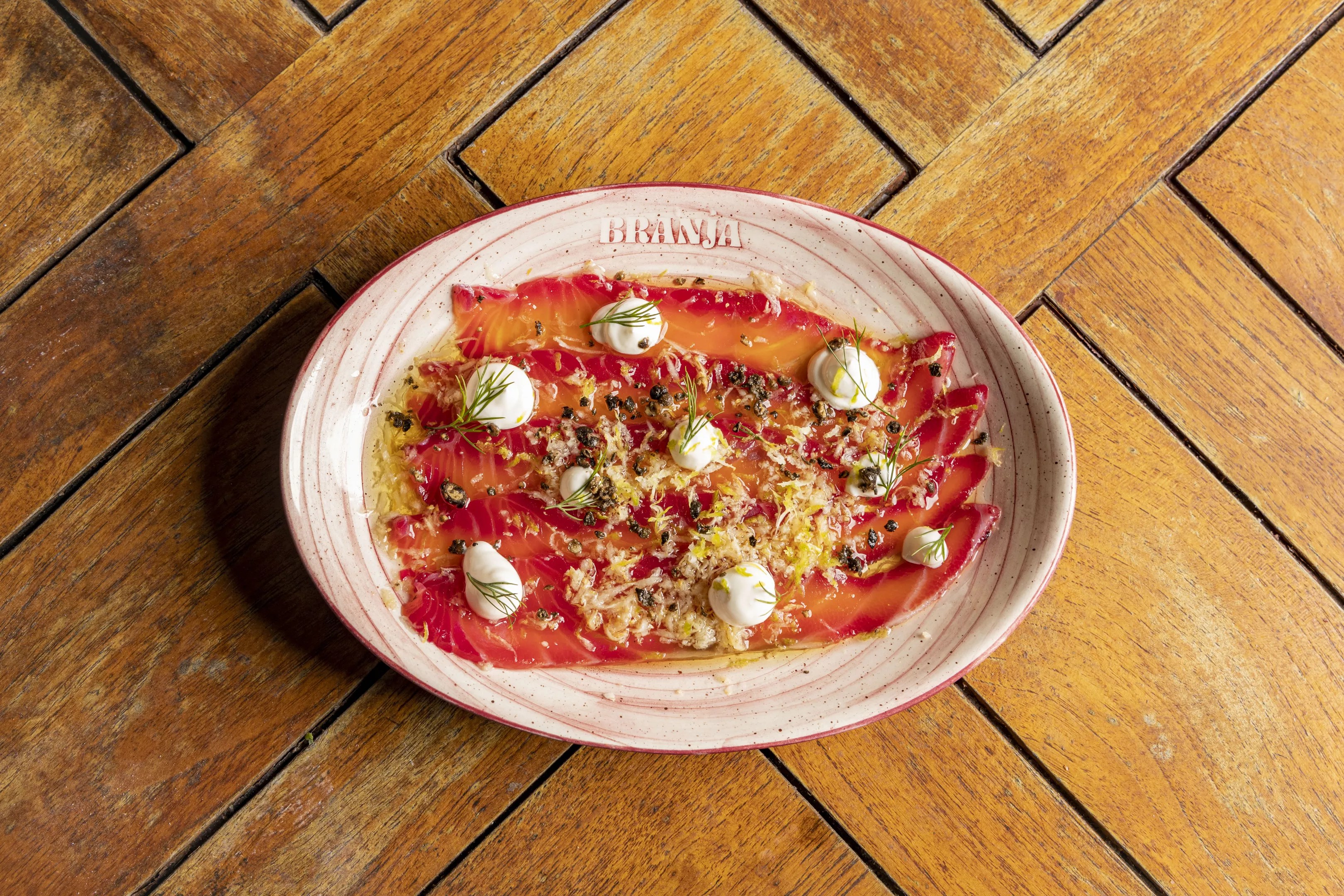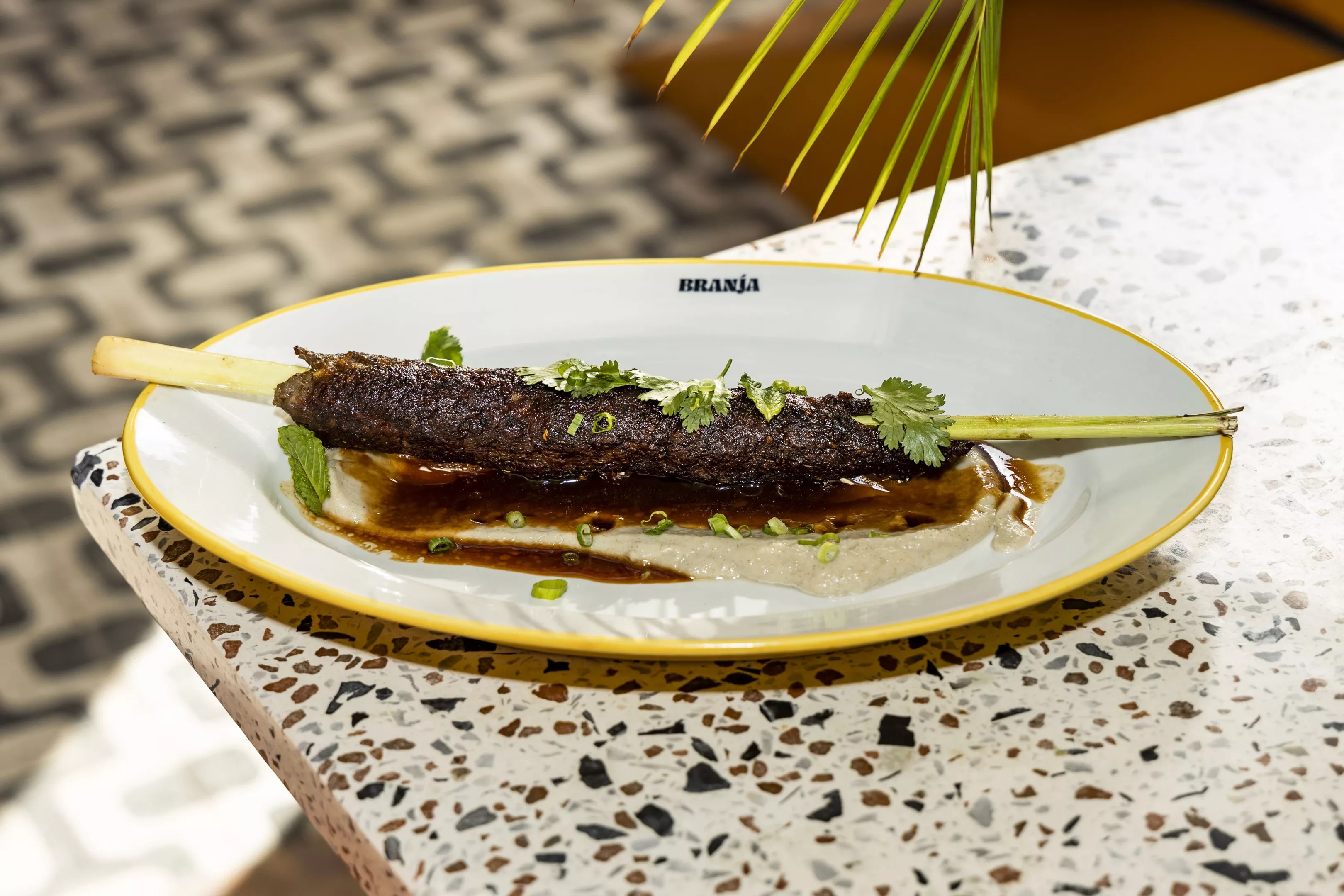
Photo by Ruth Kim

Audio By Carbonatix
You might have noticed the slew of creative Israeli restaurants flooding the city in the past couple of years.
It began with homegrown restaurant Abbalé Telavivian Kitchen and continued with Motek, Jaffa, Neya, and Aba, among others. Despite how you personally might feel about Israel, which is certainly a complicated subject, and despite how some of these restaurants are now distancing themselves from the politics and accompanying anti-Semitism by calling themselves Middle Eastern or Eastern Mediterranean, Israeli cuisine is growing increasingly popular.
Abbalé is opening a larger second location in Aventura, where 800 Degrees Wood-Fired Kitchen formerly stood. Motek, whose Arayes burger won the “People’s Choice Award” at the 2023 South Beach Wine & Food Festival’s Burger Bash for the second year in a row, has three locations. Jaffa debuted another spot in Hallandale and, soon, a third in the new food hall Okeydokey. Aba, which originated in Chicago and went next to Austin, chose Miami as its third home.
What’s great about all these restaurants is that none is like the other. The menus are not just falafel, pickled vegetables, and pita. You can dine at a different one every night of the week and have completely different meals. Israeli cuisine is wide, deep, and vast, and each chef stamps their mark on it.
This brings us to Branja, an indoor-outdoor eatery located in the bohemian retail center that is Upper Buena Vista. Unabashedly and proudly Israeli from the menu to design, Branja features mostly small plates by MasterChef Israel winner and renowned rebel chef Tom Aviv.

The interior of Branja is a 12-seat chef’s table, which is the Lenny Kravitz-designed bar from the Florida Room at the Delano Hotel.
Photo by Ruth Kim
High-energy and self-trained, the head-to-foot-tatted – literally, as tattoos also cover his scalp – Aviv is a scamp and a charmer. He’s at his best chatting with you at the indoor 12-person chef’s table (which is the repurposed Lenny Kravitz-designed bar from the Delano Hotel’s Florida Room, purchased at auction), while slinging two omakase-style experiences nightly, then throwing back a shot of arak with you at the end of the meal like it’s water. (If you’ve never had licorice-flavored arak, let us assure you, it’s not like water.) Personable, quick-witted, and ambitious, he’s a sensation in Israel, representing multiple concepts and brands. He’s also a personality in Morocco, where he’s the first Israeli chef to operate a modern Halal restaurant, Milk + Honey, in Casablanca.
Now he and his team, also generously tattooed, aim to conquer America. They’re starting with Miami, which has a large Israeli population and is comparable in character and atmosphere to Tel Aviv. They’re well on their way.
If you thought you knew Israeli cuisine, throw out all your notions.
Aviv uses both humor and fusion to create dishes such as “falafish,” an unexpectedly light, fried hybrid of falafel and fish, and “fishwarma,” where a mix of spiced, fatty fishes, usually salmon and grouper, replicates shawarma. Sitting on a bed of labneh tahini, the latter brings in more hybridity with a smattering of pine nuts and a dash of paprika oil but brings it home to Miami with a sweetener of mango syrup. Miamians will also vibe with “fish & bread,” a ceviche-style plate where the fish is tossed with a balsamic glaze and basil oil, then freshened with generous snips of cilantro and mint. Dollops of aioli and Pullman sourdough bread counter the acids and provide additional depth.

Branja’s “Brooklyn Heights sashimi” is beet-cured salmon that looks simultaneously like lox, tiradito, and pastrami.
Photo by Ruth Kim
Fish plays a starring role on the menu, including one of the most vivid and flavorful dishes, the “Brooklyn Heights sashimi.” Thinly sliced salmon is cured with beet juice, laid flat, and garnished with sour cream, horseradish, and Cambodian pepper. This looks a little like lox, a bit like tiradito, and resembles pastrami. This gives your brain and palate something of a bait-and-switch moment that’s oddly refreshing. Other can’t-stop-eating dishes range from a “fisherman bucatini” with grouper cheeks, fish jus, arak, and tarragon to “Shabbat fish,” a casserole filled with wild black grouper and a mélange of flavorful sauces that’s one of the few dishes large enough to satisfy as a dinner plate.
Part of the reason for the number of inventive fish dishes is that Tel Aviv, like Miami, is a coastal city where fish is a mainstay food item. The other reason is that while Branja is not kosher, it is kosher-style. That means Aviv offers all kinds of certified Glatt kosher proteins and doesn’t serve shellfish and pork. Meat dishes like the tangy, tamarind-flavored “tuktuk kebab,” which is chopped and molded around a skewer of sugarcane and sprinkled with cilantro and scallions, remain dairy-free, as does the “orthodox steak,” a prime kosher ribeye served sliced. Likewise, the “beef tarpaccio,” a rubied combination of beef tartare and carpaccio, is marked with a K on the menu for the observant. So those who keep kosher outside the home can still dine at Branja if they’re willing to bend the rules a bit.
Only fish and vegetables are mixed with dairy on the same plate, as with the Brooklyn Heights sashimi. But for the most part, the dairy, which is usually in the form of a labneh dip or sour cream accent, is kept to vegetarian recipes like the krouv, which is Hebrew for cabbage. This is one of Aviv’s signature dishes, a wedge of red cabbage that is slow-cooked in a four-step preparation to mimic short ribs melting in a demi-glace. It’s served with gloves that you may or may not be told are “condoms for your hands” so that you can eat it with your fingers and dip it into a side of spiked crème fraîche.
In fact, this savory dish used to be called something rather unappetizing, like “condoms and cabbages,” until the crew figured out that customers don’t always share Aviv’s somewhat brash humor. Other snide names have gone by the wayside since early February’s slow rollout. But “Tom ‘n’ tahini,” a simple, colorful, and satisfying starter of heirloom tomatoes, red onions, cilantro, tahini, preserved lemon, and the kick of a brava sauce, has remained. Still, it’s reassuring to see that this team listens to feedback, not just from critics and media but from diners.

Branja is not strictly kosher but is instead kosher style. All the proteins aside from fish are Glatt kosher, including the Thai-influenced “Tuktuk kebab.”
Photo by Ruth Kim
Branja evokes Tel Aviv’s acid-washed ’70s with upcycled tortoiseshell and Bakelite-style cutlery, reclaimed synagogue bench seating, and a stunning stained-glass ceiling that throws down color all the time but is especially potent during the golden hour. The restaurant debuted at the South Beach Wine and Food Festival in 2022 but didn’t launch until a year later. The reasons why don’t matter. Perhaps they included fine-tuning a consciously creative cocktail list that offers za’atar-infused tequila and raisin-infused arak. Maybe they needed to settle on the wine list that includes imported Israeli vintages you rarely find outside the country. Most likely, it was building out the 3,000-square-foot terrace from nothing to something and the permitting that goes with such an extensive project.
But the delays also make us appreciate the restaurant as a whole. Many restaurants say they’re artisanal, then order their furniture and plates wholesale from a supply company. Branja commissioned everything from the decorative floor tiles to the terrazzo tabletops to the 45-foot mural depicting Tel Aviv neighborhoods and market scenes from living, working artists and artisans. The pastel, Branja-branded dishes are handmade.
In the end, Branja is a perfect fit for Upper Buena Vista, where the towering trees were not cut down but instead integrated into the design of the campus. The name, Hebrew slang for a circle of friends that hangs out together, originated from “tree branch.” This kind of informal gathering is the restaurant’s mission statement, and its crossroads design, reminiscent of the retro Tel Aviv train station, is intentional. Head there with your people to brush shoulders with other people and socialize with their people, much as you would if you were traveling abroad. You might just put down some new roots.
Branja. 5010 NE Second Ave., Miami; 786-765-5555; branjamiami.com. Tuesday to Sunday noon to 11 p.m.